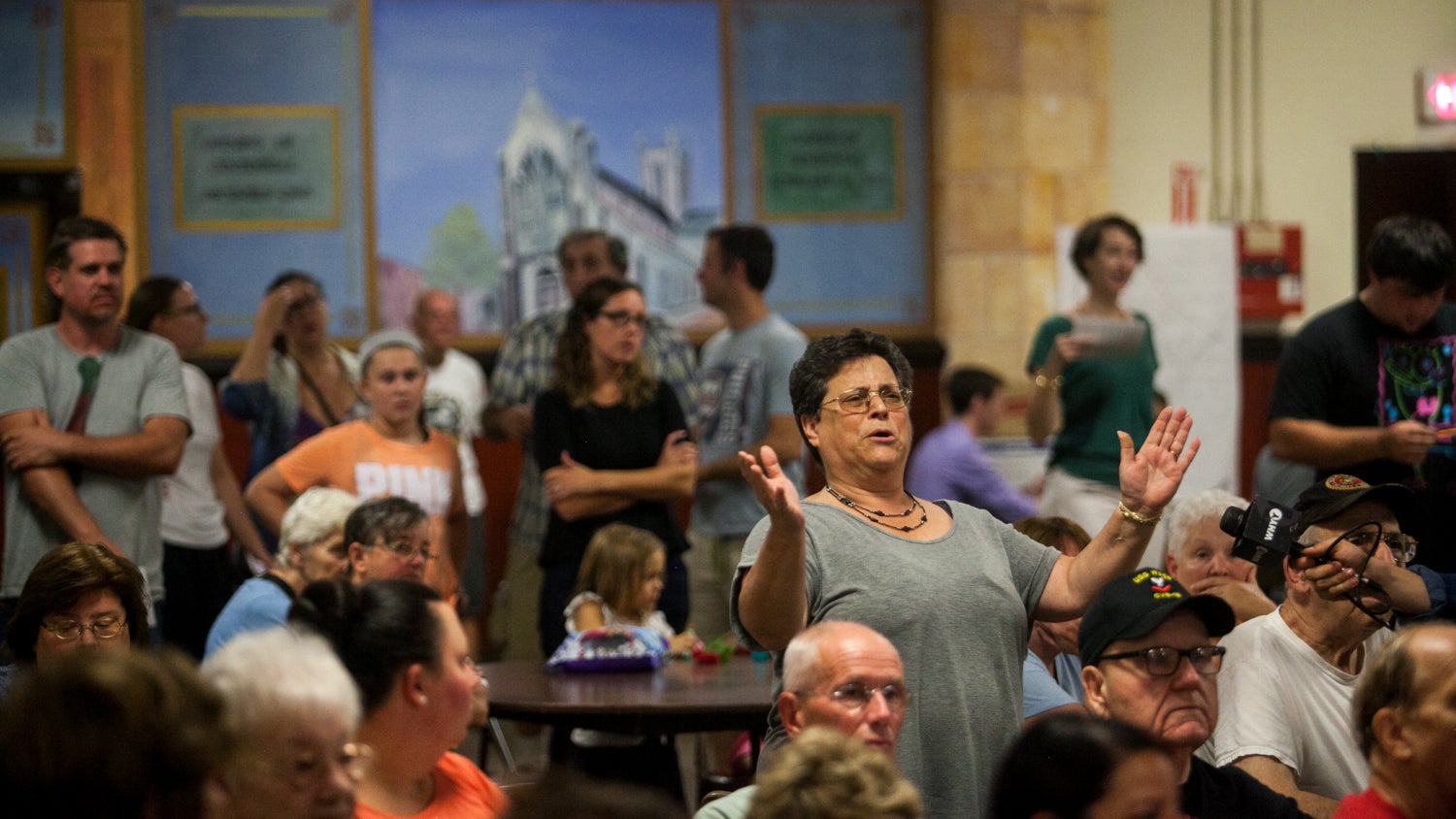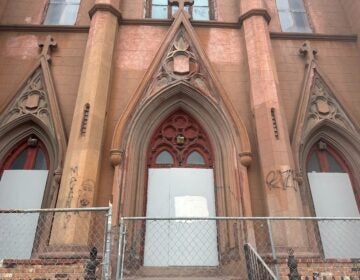Sleeping with the fishes: Fishtown Neighbors Association suspends operations after lawsuit causes insurance premium spike

Over the weekend, one of Philadelphia’s most visible civic organizations, Fishtown Neighbors Association (FNA), announced they would be suspending their activities.
At the beginning of September , the community group received notice that their director’s and officer’s (D&O) liability insurance would not be renewed. D&O insurance covers a group’s leadership in the case of lawsuits over their decisions, paying for attorney’s fees. FNA’s insurer dropped the group after its former president, Jordan Rushie, sued in 2015 over a dispute with other former board members. The lawsuit settled in September. FNA has not yet found a replacement insurer and decided to suspend operations ahead of the zoning meeting scheduled for October 17.
“We regret we had to temporarily suspend operations, but it was necessary to ensure proper insurance coverage for board and committee chairs to carry out their duties in this public office,” said Ian Wilson, president of FNA. “Fishtown Neighbors Association is still seeking to find a policy.”
FNA’s situation is an ever more familiar one among Philly’s civic organizations. Bella Vista Neighbors Association almost closed shop this summer when its insurance premiums skyrocketed after being named in a lawsuit. That community group was saved by a last minute intervention after being denied by a couple dozen other insurance companies. In 2013, Philadelphia’s oldest community organization, the Old City Civic Association, shuttered after 30 years after a lawsuit led to a big spike in D&O insurance.
Like many civic associations, FNA is run entirely by volunteers and its funds are limited. But it also represents one the city’s hottest neighborhoods, which put it into potentially contentious interactions with developers frequently.
Before a lawsuit, D&O insurance costs around a thousand dollars a year. After just a single lawsuit — even one with little merit — that price can spike into the tens of thousands. Without coverage, it is feared that if a civic association is sued by, say, a litigious developer, its individual leaders will be personally on the hook. The FNA board members do not want to take that risk.
That’s a common sentiment. And increasingly many community leaders across Philadelphia say they think the answer cannot lie in any one civic association. Instead, they say, a collective response is needed.
Can an RCO dare go with no D&O?
Jeff Hornstein,the president of the Crosstown Coalition, an umbrella group of Registered Community Organizations (RCOs), has been pushing for the city to offer group insurance for RCOs, the civic associations that were enshrined in the city’s new zoning code enacted in 2012.
Even under the reformed zoning code, RCOs’ powers are limited: Developers in search of a zoning variance must alert the primary RCO for the area where they hope to build and must have one meeting with them. But Hornstein argues that this reform essentially makes these groups part of the official zoning process, and therefore exposes them to the danger of being sued.
“Right now, we are in this weird position where the city has deputized the civic world as official participants in the zoning process,” said Hornstein. “But then when some developer doesn’t like how a particular zoning meeting goes sometimes, not often, but sometimes they try to take out that civic organization.”
Government agencies are generally exempt from many forms of lawsuits, but the RCOs don’t enjoy a similar kind of immunity.
Hornstein says he has met with administration officials about the city providing insurance for RCOs months ago after BVNA’s scare. But they didn’t feel insurance was necessary for a civic organization to participate in the zoning process.
“I said no person with a job or a life is going to participate in an RCO process without being covered by D&O insurance,” remembered Hornstein.
That proved prophetic. On background, FNA board members told PlanPhilly that they feared they would be held personally responsible without insurance backing and that their homes, bank accounts, and other possessions could be forfeit.
Hornstein says that many civic associations operate without insurance, especially in neighborhoods with fewer collective resources than those available to groups like FNA or the Bella Vista Neighbors. He says that without some kind of broadly available protections, groups in lower-income communities could suddenly face the wrath of lawyered-up developers unprotected.
The Crosstown Coalition is working on a two-pronged strategy. It is pursuing legislation against strategic lawsuit against public participation (SLAPP) lawsuits — a bill that is currently held up in committee in the Pennsylvania House of Representatives — and working on finding an insurance company that would agree to cover every group in the Crosstown Coalition.
If the city won’t agree to Hornstein’s idea for municipal insurance for RCOs, and he says that seems unlikely, then at least he can try to get a group plan that could prevent a lawsuit from driving any one organization out of civic life.
But despite all the fears of vengeful developers, neither FNA or BVNA’s cases are instances of a big monied interest trying to run a little community group out of town. Instead, in both instances, groups have simply been named in a lawsuit against members of the board who are wrapped up in legal matters unrelated to zoning or development.
Still, even if community groups aren’t facing off with big developers, civic advocates want something to be done to protect their organizations from winking out of existence in the face of litigation.
“I believe there should be some type of legislation in place to be a safeguard for these RCOs,” said De’Wayne Drummond, president of Mantua Civic Association. “I just think City Council should step in the mix and do something. How it’s setup now, it’s like rain, these allegations and suits, it’s like rain coming down from the sky and we don’t have no umbrella to cover us.”
Contacted about the FNA case, and possible policy responses to it, Councilman Mark Squilla didn’t have a clear idea of a policy response to these concerns. He agreed with Hornstein that the city had been “unreceptive” to the idea of providing insurance for RCOs. (City representatives were not able to speak about the issue before publication.) Local anti-SLAPP legislation, would be preempted by state-level jurisdiction.
Hornstein is still pursuing for umbrella coverage for members of the Crosstown Coalition. He says the organization’s ranks have swelled since BVNA’s brush with death this summer, from 24 to 30 members and that organizations with fewer ready resources have been joining as well. (The coalition has a reputation as an organization for the wealthier RCOs.) The coming weeks will tell whether an insurance company can be found to offer such a plan.
In the meantime, FNA is out of commission. Wilson said the that the New Kensington Community Development Corporation (NKCDC) would be partly taking over the organization’s zoning duties.
“We are pleased NKCDC is stepping in temporarily and the FNA hopes to get back to serving the neighborhood in the near future,” said Wilson.
WHYY is your source for fact-based, in-depth journalism and information. As a nonprofit organization, we rely on financial support from readers like you. Please give today.







